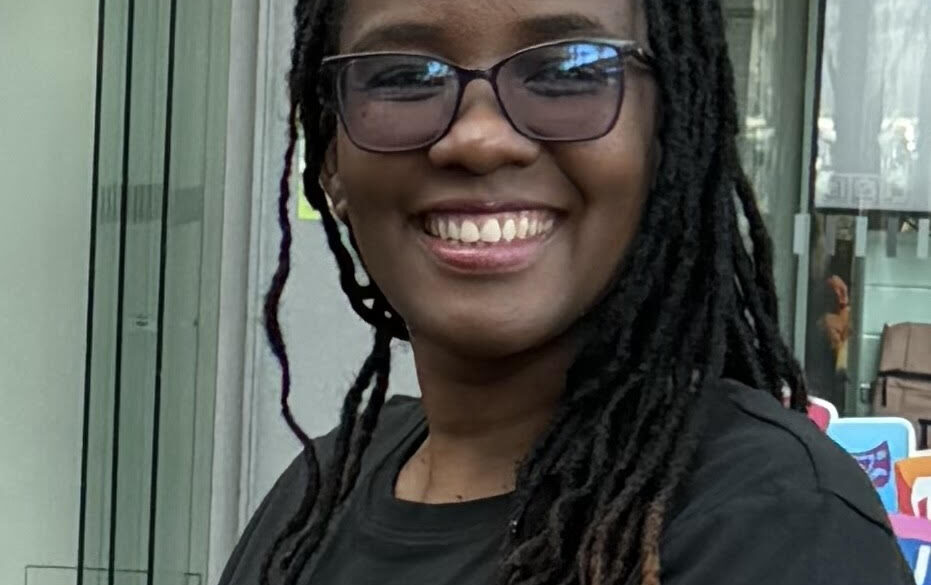AASR Scholar of the Month- Dr. Tshenolo Madigele
“AASR has been instrumental in shaping my scholarly identity. Through its conferences, peer networks, and editorial opportunities, I’ve found a platform to share my work and engage with diverse perspectives”. These are the words of Dr. Madigele, our AASR Researcher of the Month. Click on the above link for the full interview.
1. Tell us about yourself, your academic background and research interests.
I am Tshenolo Jennifer Madigele, a Senior Lecturer in the Department of Theology and Religious Studies at the University of Botswana. My academic journey began with a Diploma in Theology and Ministry, followed by a BA in Humanities, an MA in Theology and Religious Studies, and culminated in a PhD in Theology. My doctoral research focused on pastoral care for grieving elderly caregivers of AIDS orphans; a topic that continues to shape my scholarly and community engagements.
My research interests span practical theology, pastoral care, gerontology, gender and sexuality, mental health, intercultural counselling, and theology of hope and compassion. I am deeply committed to exploring how theology can respond meaningfully to contemporary societal challenges, especially in African contexts.
2. Give us insight into your current research project(s).
Currently, I am involved in several exciting projects. One is a multidisciplinary study on involuntary infertility in women in Botswana. Another ongoing PhD supervision explores trauma healing in military chaplaincy, while others investigate spirituality and mental health among university students, and psychosocial support in the Botswana Defence Force.
I also continue to publish on themes such as ageing, mental health, gender justice, and intercultural pastoral care. My recent works include contributions to the Palgrave Handbook of Ubuntu, Inequality and Sustainable Development, and Religion, Climate Change, and Food Security in Africa.
3. In what ways do you think your research addresses pressing societal challenges?
My research is rooted in real-life struggles such as grief, trauma, ageing, gender-based violence, and mental health. By integrating theology with social sciences, I aim to offer holistic pastoral models that are contextually relevant and transformative. For instance, my work on elderly caregivers and mental health during COVID-19 highlighted the need for community-based care systems and spiritual resilience.
I also advocate for inclusive theology, addressing issues of sexuality, disability, and marginalization. Through publications, public lectures, and community engagements, I strive to bridge the gap between academia and lived realities.
4. How do you see your career/research develop and evolve in the near future?
I envision my career evolving toward deeper interdisciplinary collaborations, especially in areas of mental health, gender justice, and spirituality. I am currently coordinating the development and accreditation of a Master of Philosophy in Theology and Religious Studies, which will integrate practical theology with contemporary societal needs.
I also hope to expand my advocacy work, particularly in shaping theological education to be more inclusive and responsive to African realities. My goal is to mentor emerging scholars and build networks that foster transformative scholarship.
5. From your experience, what advice would you give to younger scholars?
Stay grounded in your context. Let your research be informed by the lived experiences of your community. Be bold in addressing difficult topics; whether it’s sexuality, mental health, or social justice. Collaboration is key; seek mentorship, build networks, and remain open to interdisciplinary approaches.
Above all, remember that scholarship is not just about publishing, it’s about impact. Let your work speak to the heart of society’s challenges and contribute to healing and transformation.
6. What role has the AASR played in your career trajectory?
AASR has been instrumental in shaping my scholarly identity. Through its conferences, peer networks, and editorial opportunities, I’ve found a platform to share my work and engage with diverse perspectives. Serving on the AASR Executive Committee and Editorial Board has deepened my commitment to African scholarship and provided valuable mentorship and collaboration opportunities.
AASR’s emphasis on religion in times of crisis resonates deeply with my research, and I am grateful for the space it provides to interrogate and reimagine theology in Africa.
7. Tell us some of the challenge(s) you encountered in your career and how you surmounted them. What lessons did you learn?
One major challenge has been navigating sensitive topics such as sexuality, gender, and mental health within theological spaces. These issues often attract resistance, but I’ve learned the importance of courage, dialogue, and contextual sensitivity. Engaging communities, listening deeply, and grounding arguments in both theology and lived experience have helped me overcome barriers.
Another challenge has been balancing academic work with community engagement. I’ve learned that meaningful scholarship must extend beyond the classroom; it must touch lives. This has shaped my approach to teaching, research, and public advocacy.

